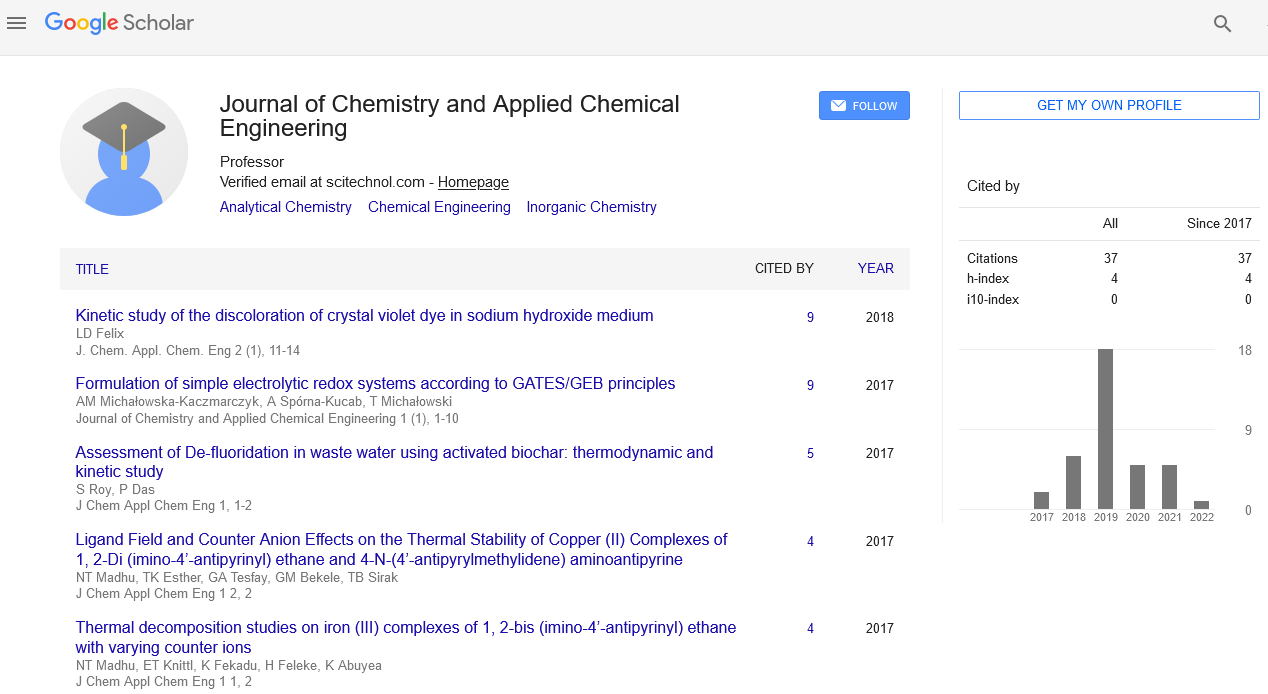Fused deposition modelling - 3D printing as an efficient alternative to fabricate lithium-ion batteries
Jose Fernando Valera-Jimenez, Juan Carlos Perez-Flores, Juan Ramon Marin-Rueda, Miguel Castro-Garcia and Jesus Canales-Vazquez
University Castilla-La Mancha, Spain
: J Chem Appl Chem Eng
Abstract
Lithium-ion batteries (LIBs) hold great promise for the transition to a sustainable energy model consistent with the recent environmental challenges, including their use in electric vehicles and energy storage for renewables and grid applications. However, the search for lowering costs and achieving higher energy density is still a priority for their implementation within acceptable margins of economic and energy efficiency. The production of batteries that fit customised product designs or enable structural functions may be considered as an alternative to achieve such goals. Although additive manufacturing has not been extensively considered in the fabrication of batteries to date, the application of 3D printing in this area may result in clear benefits in both manufacturing and environmental terms. The additive nature of 3D printing minimises waste of the electro active materials, which is more frequent in the conventional slurry casting method. A further strength of 3D printing is the possibility of producing intricate and alternative geometries that result in unfair advantages compared to the current state of the art, as contact surface between the electrodes and electrolyte can be maximised and therefore the power density is increased. Additionally, in the search for environmentally friendly and safe LIBs, the replacement of traditional liquid electrolytes which are toxic and flammable by solid ones represents a key strategy. In the case of solid- state batteries, 3D printing could not only exploit the possibility of manufacturing solid electrolytes but also the simultaneous fabrication of entire LIBs by using latest multi-material technologies, with a significant reduction of the processing steps and costs. This work shows the manufacturing of LIB electrodes (lithium titanate oxide and lithium cobalt oxide) via Fused Deposition Modelling (FDM). We assess the potential use of rapid prototyping applied to LIBs by means of widely available FDM technology and evaluate the electrochemical performance of 3D printed electrodes.
Biography
Jose Fernando Valera-Jimenez is a PhD student in Science and Technologies applied to Industrial Engineering at the University of Castilla- La Mancha. Particularly, his doctoral research is focused on 3D printing of lithium-ion batteries. He holds a bachelor’s degree in mechanical engineering and a master degree in material science and engineering. He belongs to the 3D Enermat Research Group at the Renewable Energy Research Institute (UCLM). His interests include 3D printing of components for energy and environmental applications, development of raw materials for 3D printing (FDM, SLA) and biomechanical simulation.
E-mail: josefernando.valera@uclm.es
 Spanish
Spanish  Chinese
Chinese  Russian
Russian  German
German  French
French  Japanese
Japanese  Portuguese
Portuguese  Hindi
Hindi 